Cargando...
Recursos educativos
-
Nivel educativo
-
Competencias
-
Tipología
-
Idioma
-
Tipo de medio
-
Tipo de actividad
-
Destinatarios
-
Tipo de audiencia
-
Creador
Lo más buscado
- Panda
- Repaso de historia
- Rocas magmáticas
- Conectores
- Actividades de dibujos para niños
- Letras S
- Repaso de tiempos verbales en inglés
- ortografía interactiva
- Realidad aumentada
- Posibilidades expresivas del cuerpo
- Centenas, decenas y unidades
- Problemas de escalas
- Aprender a vestirse
- Relieve de Asia
- Carga positiva
-
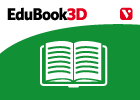
Characteristics of Spain's population
EduBook Organización
- 2132 visitas
The birth rate Population growth is high when the number of people born is greater than the number of people who die. It is low when the number of births decreases. The number of children per woman in…
-
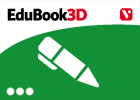
Learn. Study a 19th century industrial city
EduBook Organización
- 2139 visitas
What do we do? The drawing below shows a city and a factory in the 19th century. Look at it carefully and answer the following questions: First look at the factory. What does it produce? What types of…
-
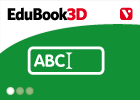
Complete. 20th century art
EduBook Organización
- 2138 visitas
Complete this text with the correct words: Many artists reacted to the events of the century through their work. Some expressed through their art, and others used it to express people's .
-
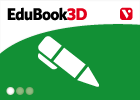
Answer. Urination
EduBook Organización
- 2130 visitas
What is the urinary system? Which organs does it contain? What do the kidneys do? How does urine pass from the kidneys to the bladder? Describe the bladder. How does urine leave the body?
-
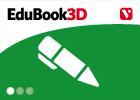
Investigate. Kidney stones
EduBook Organización
- 2139 visitas
Sometimes waste products from the blood may solidify in the kidneys. These solid concentrations are called kidney stones. Find out about kidney stones. Why are they produced? What can we do to avoid…
-
Self-assessment T8 07 - Nutrition, breathing and circulation
EduBook Organización
- 2139 visitas
Match the function to each component of blood: They defend our body from microbes. They are very small cells that are needed for blood clotting. It transports nutrients to all the cells in our body.…
-
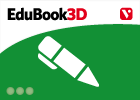
Observe. The skeletal-muscular system
EduBook Organización
- 2140 visitas
Look at the photos and answer the questions: Which parts of their bodies are these children using to move? Explain the movements that the athlete is making to throw the weight. What is the doctor using…
-
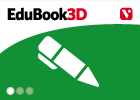
Look and answer. Ribcage
EduBook Organización
- 2130 visitas
Look at the diagram and answer the questions: Name the bones that make up the ribcage and describe it. Which organs does it protect? How many ribs are joined directly to the sternum?
-
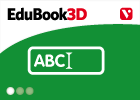
Complete. Arm movements
EduBook Organización
- 2136 visitas
Complete this text with the correct words: Many muscles form part of an antagonistic pair that make movements. The biceps and are antagonistic: when one the other relaxes, and vice versa.
-
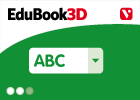
Identifica. Especies vexetais de Galicia
EduBook Organización
- 2141 visitas
Indica cales son as especies vexetais das fotografías:
Te estamos redirigiendo a la ficha del libro...













